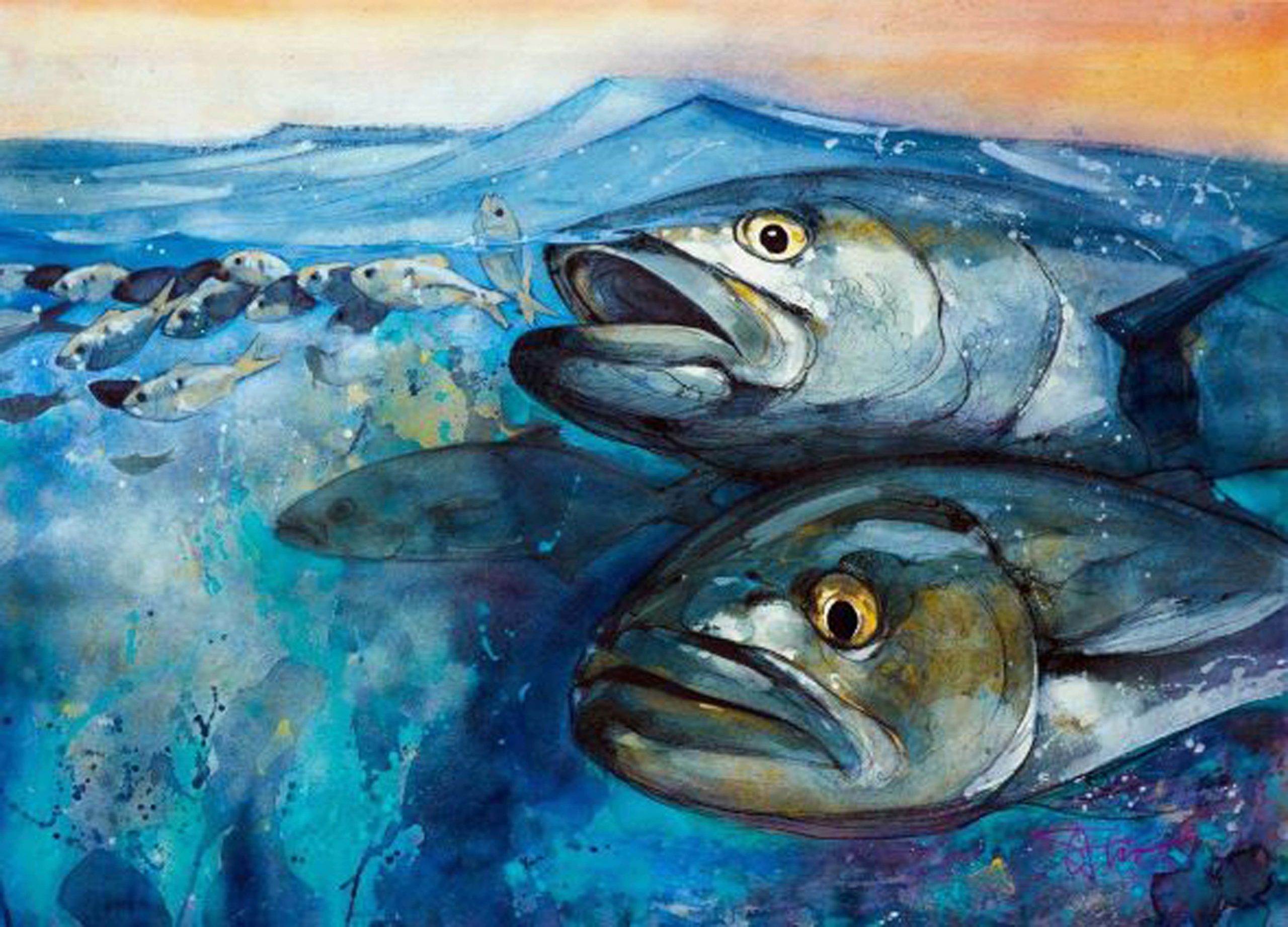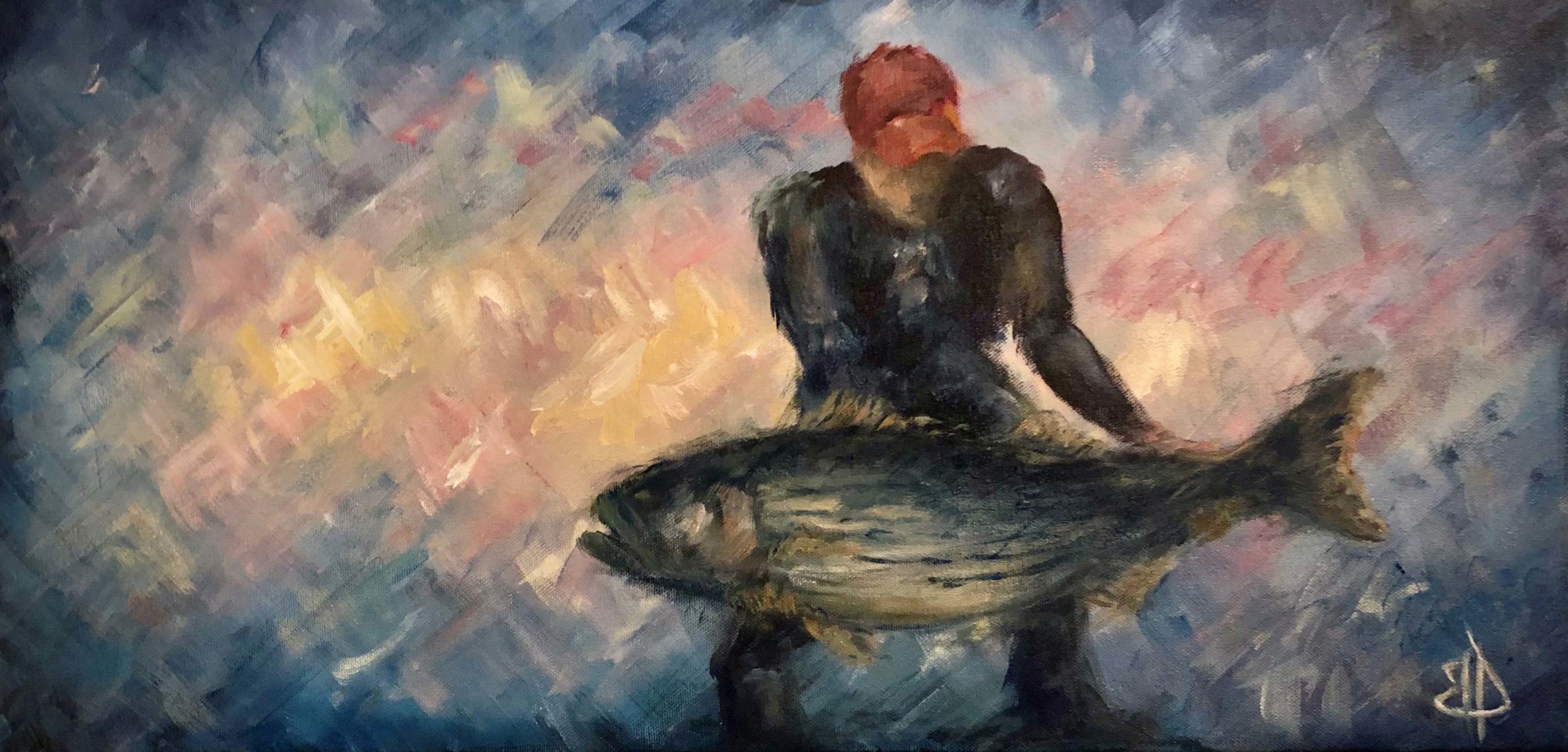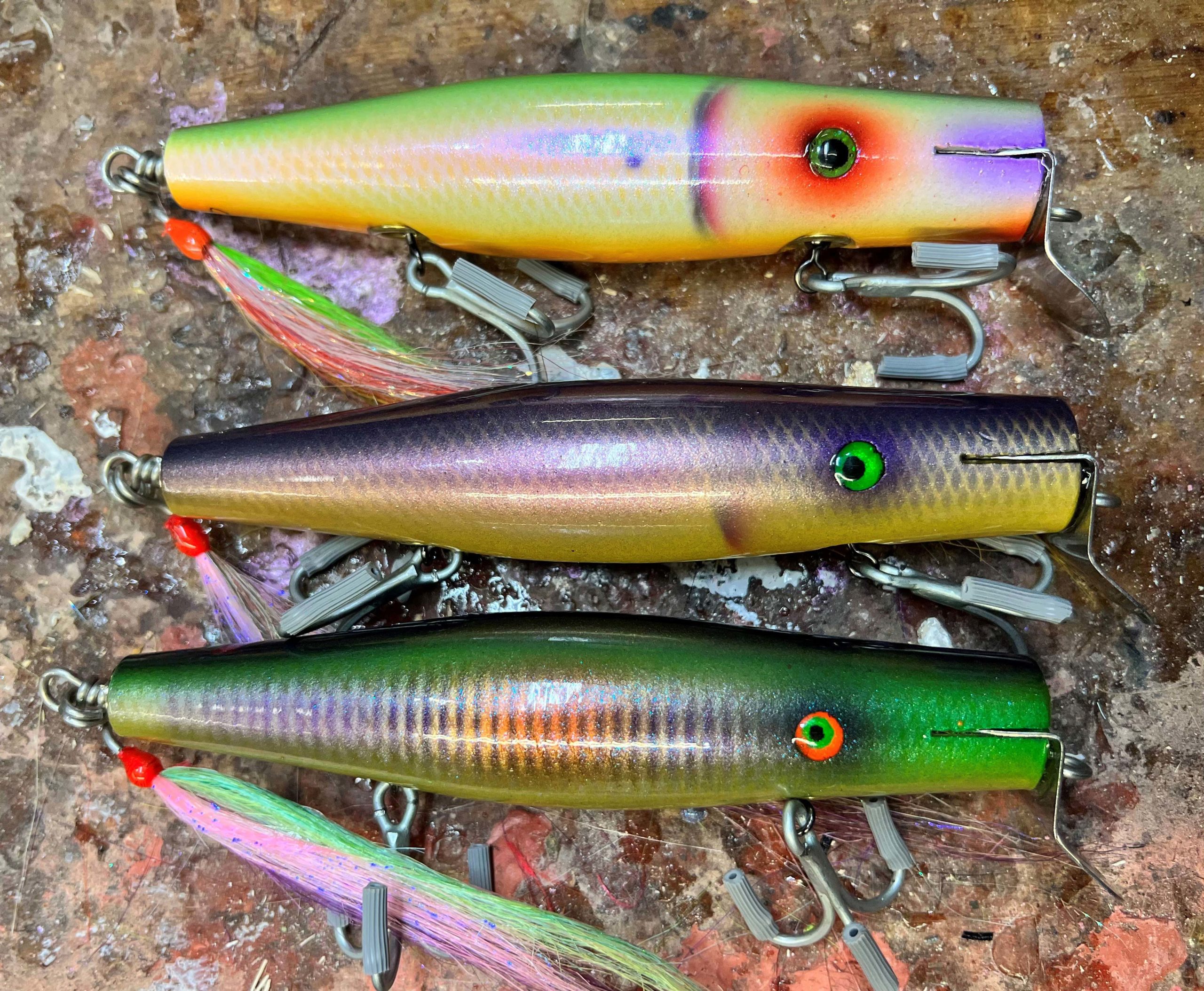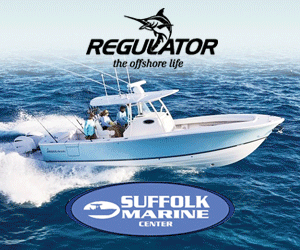
A few weeks ago, my wife asked me, “Do you consider yourself an artist?” I leapt to answer her question with a simple “no”. My wife is an art teacher and a talented artist across several mediums, she kind of smirked and asked, “why?” I said that I considered myself creative and that I felt that my creativity, coupled with my inherent competitive nature, sort of disguised this clumsy, vulgar fisherman as an artist to the untrained eye.
She tried to reason that designing lures and inventive paintjobs made me an artist, or that the drawings and Play-Doh sculptures I’ve created with my daughter would only further prove her point. I maintained that I have a creative mind and that I definitely get something very positive out of creating—be it a drawing, a plug, a story or a song on the guitar—but I lack the discipline or the refinement to be considered a true artist. We left it as one of those ‘agree to disagree’ moments any married man will know well.
But as the days passed following that conversation, I realized that a huge amount of my fishing success has come at the hands of my creativity. These thoughts stuck with me for days and continued to undulate and morph in my mind. Names would pop in and out of my head—anglers that would seem to prove that fishing can be seen as a creative outlet and, maybe I could find proof that creativity was an x-factor in fishing success. Look at Tony Stetzko, I don’t think you’d find many anglers that would refute the notion that he was one of the best surfcasters Cape Cod has ever seen, he had hundreds of giant bass to prove it including the Massachusetts state record, at 73 pounds, the second largest surf striper ever caught. But he was also a painter, who captured Cape Cod through hundreds of landscape paintings—I know many anglers who bought plugs from him and were gifted paintings as a thank you for the purchase. If you ever had the pleasure of talking to Tony, you know that creativity played a huge role in his approach to the surf—I really wish I could have interviewed him for this story.
I think the ways my own creativity has worked to make me a better angler have to do with the fact that I’m a writer. No matter where I may be casting my line, I’m always trying to find a story in the experience. This means a lot more than just remembering what happened, I look at the area where I’ll be fishing—even if I’ve been there 9000 times—and I try to connect the dots on where the fish will be or what presentations might work, based on the conditions. This means I’m looking at the terrain, current, wind, waves and light conditions and using my past experiences to make fishy sense of the hand that’s been dealt. I truly believe that an alert and engaged mind will catch more fish than the next guy down who’s fishing with expectation instead of curiosity.
I interviewed “Crazy” Alberto Knie, Chris Voorhies, Savio Mizzi and Brian DiMento; four guys whom I know to be artistic, passionate anglers. I asked them a series of questions that touched on points relating to their artistry and their success as fishermen. I think you’ll find that the results speak for themselves.

Creativity & FIshing
The first question I asked was a heavy one, “Do you feel that your creativity gives you an advantage in fishing?” The answers to this question pointed heavily to an aspect of creativity that I hadn’t even considered. I felt that Alberto said it best, “Creative people use a different part of their brain. They are meticulous and spend a lot of time thinking about how to achieve whatever it is that they’re trying to figure out. It takes a creative mind not to give up and most artistic people are very determined and capable of focusing on what’s immediately important to them.”
In the answers of the other three anglers I questioned, the words that stood out were “passionate,” and “analytical”. Chris Voorhies, in a way, echoed Alberto’s words, “I think the advantage comes from attention to detail. When I’m working on a color scheme I’m paying really close attention to how it looks and not compromising. That same kind of meticulous observation plays a big role in making me successful when I’m fishing. I love to fish, and I want to take it to that level because it makes me enjoy it that much more.”
Is Creativity a Must?
My next question to the panel was “Do you think great anglers have to be creative?” This one drew a mashup of responses that ranged from Savio’s simple, yet effective, “Yes, to be great, an angler must be creative,” to Brian’s—maybe slightly cynical—answer, “Getting creative with tackle solutions certainly helps, but I wouldn’t say that someone has to be creative to be good or successful. The advice of others is available for anyone that wants it these days and using that advice to learn about conditions, presentation or structure to look for… you can get pretty far on that alone.”
Chris Voorhies wagered that most great anglers are creative whether they can produce works of art or not. “Most of these guys are obsessive and, being obsessed means you’re going to run into problems, solving problems takes creativity.” Alberto calls creativity the “IT FACTOR” for next level fishing, “When a creative fisherman experiences bad fishing, he tries to answer the question, why? His patience and his passion will ensure that he finds the reason, even if he’s wrong the first ten times—creative people aren’t’ afraid to be wrong.”
Spare Keys
When you have great fishermen who are willing to answer questions, you always want to try and get one more little thing out of them and one of the best ways to do that is to ask a direct question about something they think about themselves. In this case, I asked “What is one other key to your fishing success?” The answers all boiled down to staying devoted to the sport—regardless of species—you need to be fishing. Alberto said his keys to success were being persistent and taking a calculated approach to timing your fishing. Chris Voorhies said he feels that his ability to put in a ton of time allows him to stay in practice and ensures that he’s out there when the fishing fires up. In fact, all of the anglers polled pointed to time spent as a major benefiting factor, Savio put it into a very succinct passage, “Experience teaches you a lot, and you only get experience by spending time actually fishing. That’s the part you can’t learn and you can’t teach.”
Brian DiMento credits his science background for part of his success, “I’d say it’s my analytical nature. I’m also a scientist, and tend to take a very systematic approach to my fishing. Trying to understand the variables at play that go into successful trips, then finding other spots, times or situations where those apply.”

It’s Personal
To wrap up each interview I asked these guys to talk about what drives them to pursue their passions, both artistic and in fishing. I also wanted to know if they got the same kind of satisfaction out of each. For Chris, he said that plug building is a way to stay sane in the winter, “otherwise I’d just go crazy because I’d always be thinking about fishing!” He went on to say that he derives much more satisfaction from fishing than he does from creating his beautiful and unique plugs, “Building plugs is an extension of my fishing, but that doesn’t work the other way around for me. As for what drives me to fish, I don’t think I could say much more than I just love to be out there.”
For Brian DiMento the drive to fish is a mixture of taking on a challenge and finding an escape from everyday life. “I love the gratification of figuring things out on my own without the pressure of work, while still being rewarded for the hard work I’ve put in. I like the added aspect of approaching a spot with a strategy, a reason for being there and an approach to present my lures.”
Alberto says he does get the same kind of satisfaction from creating art and fishing, “It’s a personal thing for me, a competition with myself, to achieve, to push myself to do better than I did last time. When I stop feeling that, I don’t want to be around anymore.”
My favorite response to this question came from Savio, “No I don’t [get the same satisfaction from both]. When I’m out on the water, I feel no pain. My charter clients often have to beg me to go in, I never want to leave. When I first discovered striped bass, I got so obsessed that I stopped working, all I did was fish. I had to change jobs to something that allowed the freedom to fish more. If fishing was a drug, I would have been dead a long time ago.”
Epilogue
At the end this process I think I found the truth. Anglers don’t have to be creative in an artistic sense, but the drive and determination to get to the point or excellence almost guarantees that the person has a creative mind. Whether it’s crafting ironclad excuses for being late or for parking in a questionable location. Or if it’s the unshakeable daydreaming about how to approach that new spot or what you should have done differently when you lost that giant last week. Or maybe it’s the endless ruminations about how to get a plug to work properly in one specific rip, or how to anchor up on that wreck where no one else dares to try. It’s the determination of the creative mind that figures these things out and it’s that willingness to completely give oneself to finding that solution that makes it possible.



